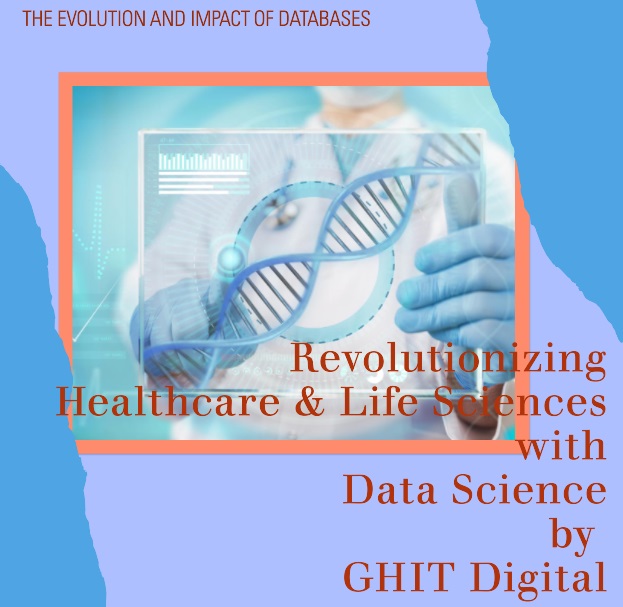
In today's data-driven world, databases have emerged as the cornerstone of modern information management systems. They play a critical role in storing, organizing, retrieving, and analyzing vast amounts of data, enabling businesses, organizations, and institutions to make informed decisions, optimize operations, and gain valuable insights. This article delves into the realm of databases, exploring different types, technologies, and their diverse applications across various industries. The database landscape is dominated by several major players, each offering a suite of database products and services that cater to diverse industry needs.
The world of databases is broadly divided into two main categories: SQL (Structured Query Language) and NoSQL databases. Each type offers distinct advantages and is suited for different use cases.
SQL (Structured Query Language) is the standard language for interacting with RDBMSs. It allows users to perform data manipulation operations, such as inserting, updating, and deleting records, as well as retrieving specific data subsets using queries.
NoSQL databases, on the other hand, employ a variety of data access methods, tailored to the specific type of data they store. For instance, document-oriented databases use JSON queries, while graph databases use graph traversal algorithms.
The database landscape is dominated by several major players, each offering a suite of database products and services. Some of the most prominent brands include:
SQL databases, also known as relational databases, are designed to store data in a structured format, organizing it into tables with rows and columns. Each row represents a single record, and each column represents an attribute of that record. The relationships between tables are defined through foreign keys, ensuring data integrity and consistency.
- Strong data consistency and integrity
- Efficient for structured data queries
- Proven reliability and scalability
NoSQL databases, also known as non-relational databases, have emerged as a response to the limitations of SQL databases in handling large, unstructured, and rapidly growing datasets. They offer flexibility and scalability, enabling them to store and manage diverse data types, such as documents, graphs, and key-value pairs.
The emergence of new-generation databases, such as cloud-native and distributed databases, is transforming the way data is managed and utilized in various industries, particularly healthcare, life sciences, government-health, and state and local government and education (SLED) companies.
As data volumes and complexity continue to grow, database migration, ETL (Extract, Transform, Load) processes, database governance, digital data, and cloud data have become increasingly important considerations.
Database Migration - The process of transferring data and applications from one database platform to another. Updating to a more modern or scalable database platform, consolidating multiple databases, reducing IT costs and complexity, and improving data security and compliance.
Databases have evolved significantly, and the choice between SQL and NoSQL databases largely depends on specific use cases. Leading database brands like Oracle, Microsoft, IBM, and MongoDB offer solutions tailored to diverse needs. The latest generation databases are revolutionizing industries like healthcare, life sciences, and government-SLED through improved data management and analysis. With use cases spanning database migration, ETL, governance, and cloud data, databases continue to play a pivotal role in our data-driven world.
GHIT Digital ( https://ghit.digital/) is a domain focused, future ready, boutique IT Services & Digital Transformation firm. We are Minority and Women Owned (MWOB) small business from New Jersey, USA. Diversity, Inclusion, and Growth is our Mantra. Team GHIT works on strategic IT Projects for Government (G); HealthCare (H); Insurance (I); and Technology (T) clients, thus the brand GHIT. We are nimble, scalable and sell & deliver with Platform Partners & Delivery Partners. Our niche capabilities include Agile Project Management, Infrastructure Services, Data Services, Cloud native Data and Apps Implementation, Integration, Migration, Security & Optimization.
MonMass, Inc. (the legal name of GHIT Digital) will work on your strategic IT Projects or tactical Staffing & Consulting requirements (NAICS codes 541511 / 541512 / 541330 / 541618). Feel free to call 201.792.8924 or write to us at Contact@GHIT.digital for no obligation discovery conversation. You are welcome to share your RFPs/RPQs for us to review and respond on time.
We should connect. We could talk about market trends and explore business synergies, if any.
Monika Vashishtha, MBA, ITIL, PMP
President & COO
https://ghit.digital I +1 201.792.8924
Government | Health | Insurance | Tech
#GHIT, @GHIT, #GHITDigital, @GHITDigital, #Monika, #MonikaVashishtha, @MonikaVashishtha, #MonMass, @MonMass #MonikaGHIT, #GHITLeadership, #GHITCOO, #Government, #HeahtlhCare, #Insurance, #Technology, #ITServices, #DigitalTransformation, #DataServices, #CloudServices, #InfrastructureServices, #ProjectServices, #LowCode #CICD, #TechConsulting, #BusinessCOnsulting, #WhyGHIT, #Workflows, #GHITInsights, #GHITPOV, #GHITBlogs, #ProjectManagement, #GovHealth, #GovHealthIT, #RFPs, #RFQ, #GHITContracts, #ContractVehicles, #Innovation; #Scalability; #Analytics; #ML; #AI, #Compute; #Storage, #Innovation; #Security; #Compliance @theChiefMedicalOfficer, #CMO, @theChiefMedicalInformationOfficer, #CMIO, @theChiefInnovation Officer, @theChiefDataOfficer, #CDO, @theChiefDigitalOfficer, @theChiefInformationOfficer; #DataAnalytics ; #AnalyticsTools ; #AnalyticsExperts; #DataScience; #MachineLearning; #AnalyticsInsights; #BusinessIntelligence; #PredictiveAnalytics; #AnalyticsForBusiness; #DataDriven; #DataStrategy; #DataVisualization; #AIAnalytics; #DataSolutions; #DataROI; #DataMining; #DataGeeks; #BigData; #DataInnovation; #SmartData; #HealthcareIT; #HealthcareAnalytics; #DigitalData; #HealthTech; #HealthcareInsights; #HealthData; #DataDrivenHealthcare; #HealthcareDataScience; #PatientAnalytics; #AnalyticsInHealth; #HealthcareBI; #MedicalAnalytics; #HealthcareInformatics; #HealthcareTrends; #ClinicalAnalytics; #DataScienceHealth; #DigitalHealth; #EHRAnalytics; #HealthcareInnovation; #HealthcareDecisionSupport; #PrecisionMedicine